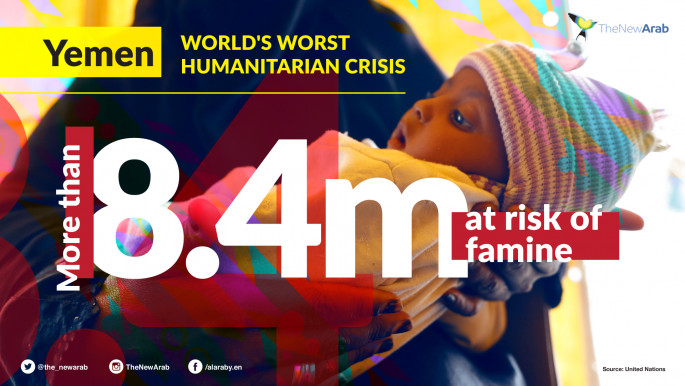
Soft drink Vimto becomes unlikely victim of Saudi-led blockade of Yemen
A soft drink invented in north-west England 109 years ago has become the unlikely victim of the Yemen conflict.
The makers of Vimto, the purple, syrup-like thirst-quencher, popular during the holy month of Ramadan as a sugar boost to break a day of fasting, have seen shares tumble as much as 13 percent in one day - the most since at least 1991, according to Bloomberg.
The cause of the drop is the blockade on conflict-hit Yemen, instigated by Saudi Arabia, which has prevented supplies from getting through.
"The recent escalation of hostilities in Yemen has resulted in the supply route to our Yemeni customer being blockaded," manufacturer Nichols said on Tuesday. "Therefore, at this time we are unable to send any further Vimto concentrate shipments that were planned for December."
Nichols, founded in 1908, generated almost 10 percent of sales from the Middle East last year.
According to a 2013 BBC article, Vimto was first sold in the region in the 1920s, and manufactured in Dammam, Saudi Arabia, since the 1970s. It is comfortably the biggest market for the drink outside the UK, it said.
"They like the flavour, and particularly with it being non-alcoholic, that obviously helps," said John Nichols, non-executive chairman of the company.
The drink sold in the Gulf is much sweeter than that found in the UK.
"That's historic, from when we used to ship it over there," Nichols said. "It was easier and cheaper to ship highly concentrated syrup, rather then sending water round the world."
Vimto has another unlikely connection to the Middle East.
In February 2016, the Islamic State group was mocked online after claims it faked footage of battles in its propaganda videos and even used Vimto as fake blood.
A blockade of Yemen's Red Sea ports has put a 8.4 million people at risk of famine, with two out of three Yemenis struggling to get enough food to survive.
At least 14,000 people have been killed or wounded since a Saudi-led coalition intervened in March 2015.
The UN's World Food Programme has previously declared that food is being used as a weapon of war in Yemen.
![supermarket [Getty] supermarket [Getty]](/sites/default/files/styles/large_16_9/public/media/images/6E18FE9D-49AC-419C-813E-B8230AD683F4.jpg?h=d1cb525d&itok=_nwtIytj)

![Minnesota Tim Walz is working to court Muslim voters. [Getty]](/sites/default/files/styles/image_684x385/public/2169747529.jpeg?h=a5f2f23a&itok=b63Wif2V)




